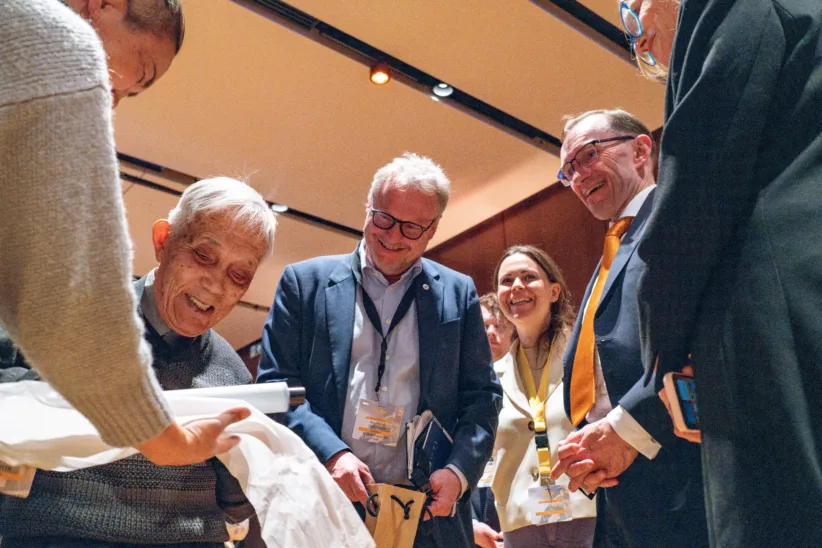An extremely worthy Peace Prize winner
- This is an incredibly important recognition of the work of the hibakusha, the survivors of Hiroshima and Nagasaki, with whom we are proud to have collaborated with over several years in the fight against nuclear weapons, says Secretary General of Norwegian People's Aid, Raymond Johansen.

- Continuing to live with the risk posed by nuclear weapons is a political choice, says Johansen. - It is not a law of nature, or something we cannot avoid. We cannot continue to deny or ignore the threat that nuclear weapons pose to our lives, our families, and our future, says Johansen.
- Recognizing The hibakusha's tireless work to highlight the catastrophic humanitarian consequences any use of nuclear weapons will have, by awarding them the Peace Prize, is definitely in the spirit of Alfred Nobel, says Johansen.
Some believe that we need nuclear weapons because they create security. This view rests on the assumption that we can know and control all the risk factors that they obviously imply.
- This is simply impossible, says Johansen. - As soon as we accept this, nuclear deterrence becomes a deeply dubious and dangerous project, and it becomes apparent that nuclear weapons themselves are a source of constant uncertainty for all countries.
- Nuclear deterrence is to threaten that a new generation will be at risk of suffering the same, terrible humanitarian consequences that the hibakusha speak and warn about. We must not accept that threat, says Johansen.
The previous Norwegian coalition government, consisting of the Labour Party, the Socialist Left Party and the Centre Party, started the so-called humanitarian initiative on nuclear weapons, which led to new dynamics on the nuclear issue in the UN. After a change of government in 2013, this initiative was shelved.
- The current Norwegian Prime Minister Støre's government has promised to focus on the humanitarian consequences of nuclear weapons again, says Johansen. -This Peace Prize should be a reminder to the government that Norway should sign the international ban on nuclear weapons, he concludes.
